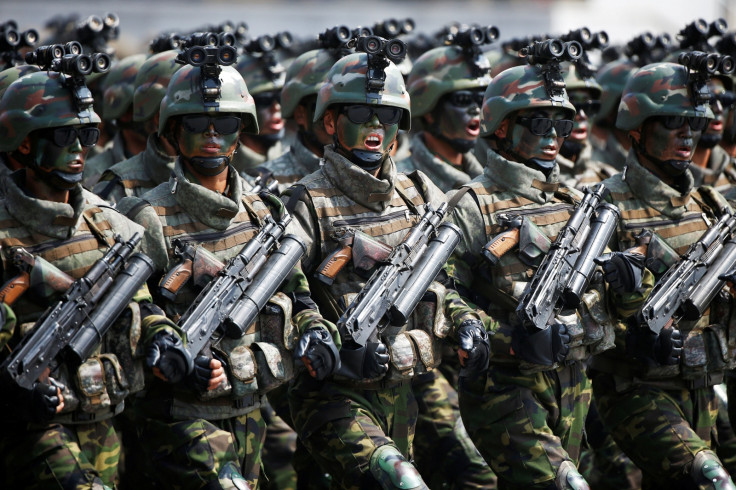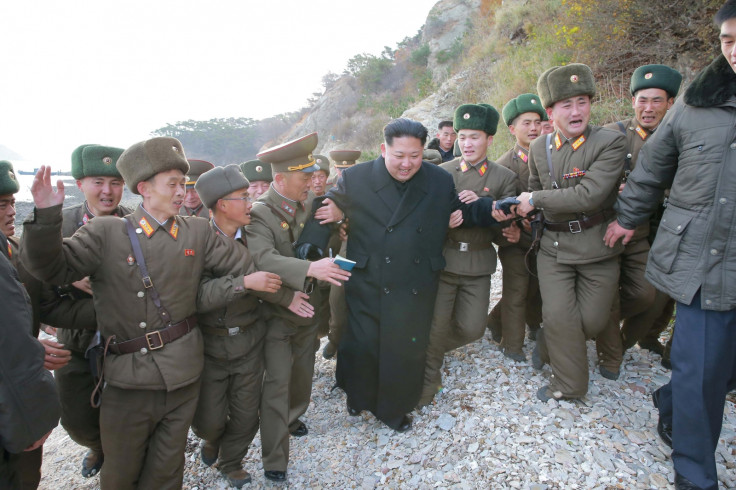Why we aren't heading for World War 3
From the point of view of North Korea's tyrant Kim Jong-un, the nuclear programme has already worked.
There's a reason that no one has dropped a nuclear bomb since 1945. That reason is, well, reason. There have been vanishingly few circumstances where a nuclear attack could be justified in terms of rational self-interest.
From the 1950s to the 1980s, nuclear obliteration was seen, not simply as possible, but as probable. The mushroom cloud was a popular image of the era: you'd see it in TV dramas, on book covers, on record sleeves. Nor was it just novelists who imagined nuclear annihilation – though many, from Neville Shute to John Wyndham, had a go. Some of the most eminent men of the era, including Albert Einstein, CP Snow and Carl Sagen, declared that the end of civilisation as a result of nuclear war was more likely than not.
Why didn't it happen? Because, in the event, no one wanted to set in motion a chain of events likely to impact deleteriously on themselves and their families. The risk of retaliation was too vast.
Nor, indeed, did nuclear powers blackmail non-nuclear antagonists. The United States did not threaten to nuke the Vietcong, nor the USSR the Afghan rebels. No one suggested that, had Britain's conventional forces faced defeat in the Falkland Islands, a tactical nuclear strike against Argentina might have been in order. Such things were, as Steven Pinker argues in his great work, The Better Angels of our Nature, unthinkable. After 1945, a taboo gradually grew up around the use of nuclear weapons, strengthened by each passing year of non-use.
What, then, of the present stand-off between the United States and North Korea? The concern is that we are dealing, not with rational actors, but with two psychologically flawed leaders who may, though a disastrous series of bluffs and miscalculations, end up pushing the buttons.
During the election campaign, Barack Obama teased Donald Trump over his short temper and lack of self-control. A man who couldn't be trusted with Twitter, Obama mocked, couldn't be trusted with nuclear codes. But whatever your view of Donald Trump's personality, he is operating within the constraints of a democracy in which power is diffused and circumscribed.
The same is not true of the North Korean autocrat, Kim Jong-un. We have ample evidence of Kim's murderous tendencies, even toward family members. We know, too, that the state he leads is prepared to act violently. North Korea has carried out numerous belligerent acts against South Korea without triggering retaliation: blowing up a plane, torpedoing a frigate, murdering a minister. Might Kim go further and risk a full-scale war?

Actually, Kim's behaviour is more rational than it might seem at first sight. Remember that his interests are not the same as those of his wretched people. He runs the kind of extractive slave-state that has been the usual form of human organisation for the past 10,000 years. As long as his regime survives, he personally flourishes: like an Iron Age emperor, he can ignore the misery of his subjects as he luxuriates in his palaces, parades and harems.
From the point of view of North Korea's tyrants, the nuclear programme has worked. Not for the Kims the fate of Saddam or Gaddafi. The threat, however slight, that they might incinerate millions has bought them a kind of wary respect.
Kim's behaviour is more rational than it might seem at first sight... As long as his regime survives, he personally flourishes
At what price, though, to the two Koreas? We know that North Korea went through a mass famine in the 1990s – though, as with everything else about that hermit country, details are hard to come by. We know, too, that the weapons programme will eventually tilt the balance of power, encouraging Pyongyang to be more assertive vis-à-vis its southern neighbour. So far, the American policy of cautious restraint has not slowed that process.
Hence Mike Pence's changed tone. "There was a period of strategic patience but the era of strategic patience is over," the Vice-President said during a visit to South Korea over the weekend. Just in case anyone missed his point, he added that the US had fired 59 Tomahawk missiles at targets in Syria and detonated the world's largest non-nuclear bomb in Afghanistan.
You didn't need to be a security specialist to catch Pence's subtext: "Listen, Kim, if you think we're going to carry on humouring you while you build nukes, forget it. You're up against an ornery son-of-a-bitch who might just be as crazy as you are. If you look like getting a delivery mechanism for your fissile material, he'll blow it – and you and your whole sorry-ass country – to hell."

As every commentator has pointed out, this tactic carries dangers. But think of the alternatives. Washington has evidently calculated that the greater danger would be to allow Kim to get his hands on working nuclear technology.
Donald Trump is plainly right that any solution must involve China, which controls all of North Korea's key supplies. Beijing doesn't want a nuclear-armed despot on its doormat; but it wants a united Korea under American domination even less.
How, then, might the world's two largest powers defuse this dangerous device? Only by convincing Kim that it is in his own rational interest to call a halt to the weapons programme. To convince him, in other words, that his monuments and his harems will go – and very probably his life, too – if he continues to grope toward nuclear ICBMs.
It should work. Kim clambered to the top in Pyongyang over the corpses of other contenders. You don't get to wield power, even in a regime like North Korea, without being able to do basic cost-benefit analysis. When he looks at the White House, Kim will see someone who might indeed be prepared to vaporise him. He will look for a means to maintain the (for him) comfortable status quo. Once, nuclear weapons seemed a way to achieve that end; not now.
Daniel Hannan has been Conservative MEP for the South East of England since 1999, and is Secretary-General of the Alliance of European Conservatives and Reformists. Follow @danieljhannan
© Copyright IBTimes 2025. All rights reserved.






















